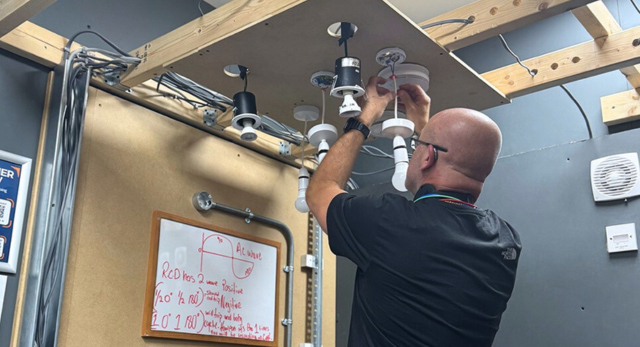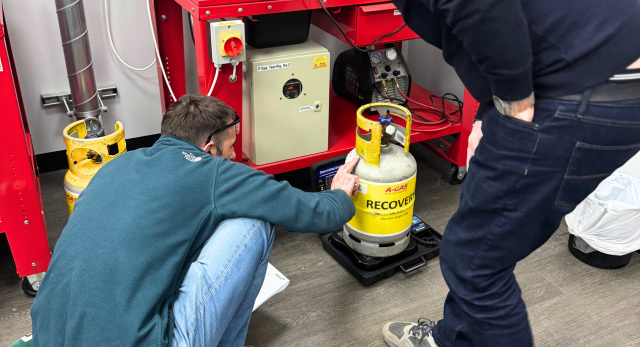A-Level results day across England and Wales, a day of excitement and, sadly, disappointment for some. Students who didn’t get the grades they needed will be going through the clearing process and matched with university places that haven’t yet been filled.
Don’t despair! Accepting a clearing place on a course you haven’t got your heart set on at a university that wasn’t top of your list, is not the only option.
Have you thought about choosing a vocational course in building services instead?
You could avoid a £50k debt, start earning quickly and contribute to net zero.
Why vocational courses could be better than a university
Here are some reasons to consider choosing the trades over university:
Training in the trades will cost you considerably less than going to university
Current university fees and living costs leave most graduates with significant debts. The BBC put a Freedom of Information request to the Government and discovered that the highest student debt was £231,000, which is astonishing!
Most graduates are left with debts of at least £50K. That’s a lot of money, especially if you end up doing a course that wasn’t your first choice. The BBC’s report goes on to say that roughly half of all potential students are put off studying at university because of the associated costs. You need to think carefully – do you really want to start your working life with a hefty student loan to pay off?
By comparison the most you’re likely to pay for a new entrant’s vocational course in the trades is around £8K, with private training centres offering payment schemes to help spread the cost. Another advantage is that vocational courses tend to be shorter than degrees, so within a year or so you’ll be earning a salary and able to see a return on your investment.
You could also think about an apprenticeship, where you split your time between classroom learning and a work placement. You’ll earn a salary from day one, so you’ll be able to avoid a loan completely! Apprenticeships usually take between two and three years.
You’ll earn more straight away
Believe it or not, most graduates earn less than tradespeople upon leaving university. Recent figures from the Department of Education show that entry-level salaries for those working in the trades start at around £26,000. The average salary for a university graduate is £21,000 – hardly worthy of the £50k price tag!
Of course, there are very high-earning careers that require a university degree—lawyers, doctors, and computer scientists, for example—but the reality is that not everyone is cut out for these high-pressure roles.
While a degree will undoubtedly put you in line for well-paid jobs, the same applies to building services trades. Gas engineers have an average salary of £40,000 a year. Self-employment and setting up your own business are common in the trades, providing limitless earning potential for those with drive and determination.
You’ll be helping the UK move towards a more sustainable future.
At the moment, building services is going through an exciting period of change as we move away from fossil fuels. Renewables are the future and plumbers, heating engineers and electricians are the people leading the way, helping the wider population embrace sustainable alternatives to heating and powering their homes. There’s potential to diversify into the latest low-carbon technologies – solar PV, battery storage, EV charging and heat pumps, for example. Courses in these areas is designed for existing building services installers and can be added on to the end of our new entrants’ programmes.
Whatever your results are today; what you wanted or missing the mark, this could be a good opportunity to take stock and explore some alternatives to university that may well suit you better (and cost a lot less!)
Please get in touch if you’d like to explore vocational training and we’ll help you work out a new plan.
Clearing alternatives from Logic4training
We offer a number of options that would be suitable for candidates who have finished College – whether going through clearing or just considering an alternative path to university:
New entrants’ courses: In plumbing, gas and domestic electrical installation. There are no prerequisites for these courses, and upon completion, candidates will be qualified and ready to work in their chosen field. Training is usually completed well within a year and combines in-classroom learning with real-world experience.
Apprenticeships: We offer apprenticeships in gas and smart metering. There is no cost to the learner, and apprentices will earn the minimum wage straight away. Apprentices are employed and combine classroom learning with on-the-job training. Apprenticeships take between two and three years.









